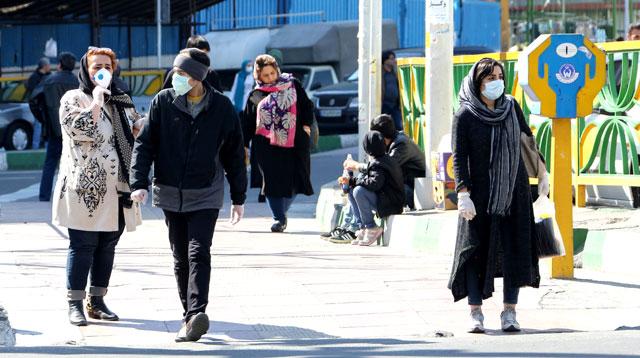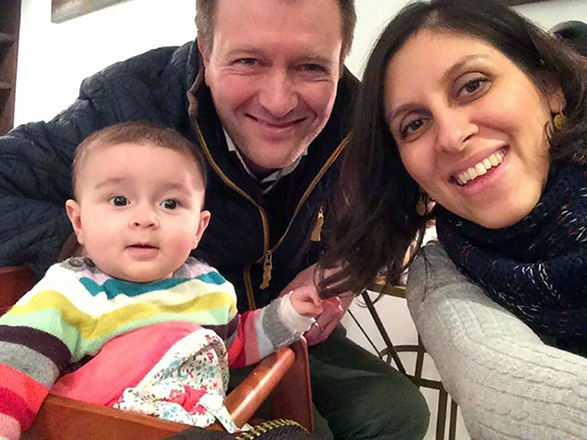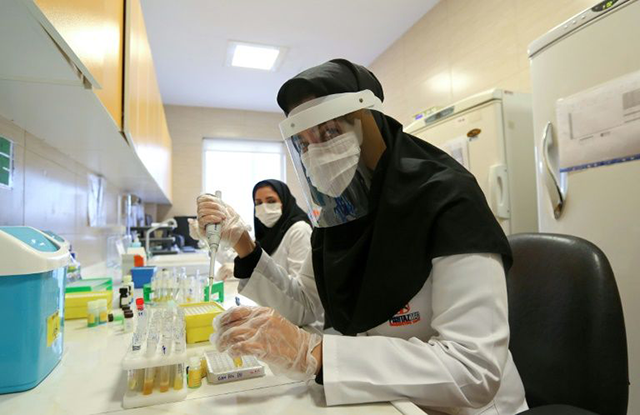You are here
Iran freeing 70,000 over virus ‘too little, too late’—UN expert
By AFP - Mar 10,2020 - Last updated at Mar 10,2020

Iranian pedestrians walk while wearing protective masks in Tehran on Tuesday amid the spread of coronavirus in the country (AFP photo)
GENEVA — Iran's response to the deadly new coronavirus outbreak, including temporarily releasing 70,000 prisoners, has been "too little, too late", a UN rights expert said on Tuesday.
Javaid Rehman, the United Nations special rapporteur on human rights in Iran, said Tehran was trying to "fudge" its handling of the outbreak, one of the deadliest outside China, where the disease originated.
"The situation on coronavirus is highly disturbing within Iran," Rehman told reporters at the UN in Geneva.
Since the first two reported deaths in the holy city of Qom on February 19, the disease has spread widely, he said.
"It has been a rapid expansion. In my estimation, the state has done too little, too late."
Iran on Tuesday reported 54 new deaths in the past 24 hours, the highest single-day toll since the start of the outbreak there. That brought the numbers killed in the country to 291 out of 8,042 infected.
And recent reports suggest that COVID-19 has spread inside Iranian prisons.
The Iranian judiciary's Mizan Online official news agency cited Asghar Jahangir, the head of Iran's prisons organisation, as saying that "about 70,000 prisoners" had been released in a bid to combat the spread.
But this temporary release programme was an inadequate response, said Rehman.
"We don't know what conditions they have been released on: The bail agreement, for how long precisely," he added.
Prisons 'a recipe for disease'
For one thing, it only included people serving sentences of up to five years.
It would therefore exclude anyone jailed for national security offences, such as those rounded up in the lethal crackdown on protests in November, political prisoners and dual and foreign nationals, he said.
He had recommended to Tehran that it free "all prisoners on temporary release and not have this discriminatory restriction of a threshold".
The authorities should ensure a comprehensive testing scheme, he added, as "many prisoners have expressed concern that the state is not doing enough.
"They are trying to fudge this issue."
Iran had been slow to react to the virus when it broke out, said Rehman, and they were still not doing enough. "We want transparent public outreach and communication."
In his latest report, presented to the UN Human Rights Council this week, Rehman expressed alarm at the conditions of detention in Iran.
In Iranian prisons and detention centres, overcrowding, poor nutrition and the lack of basic hygiene were "a recipe for disease", he said.
But Rehman also warned that US sanctions, reimposed after Washington pulled out of a landmark nuclear deal, were leading to shortages of essential medicines and medical equipment in Iran.
Related Articles
GENEVA — Nasrin Sotoudeh, an internationally renowned human rights lawyer jailed in Iran, was handed a new sentence on Monday which her
PARIS — The crippling uncertainty behind bars as a deadly disease rages. A lack of proper sanitary equipment.
TEHRAN — Iran called on Thursday for the US to be held accountable for "cruel" sanctions that have hampered its efforts to fight a coronavir

















